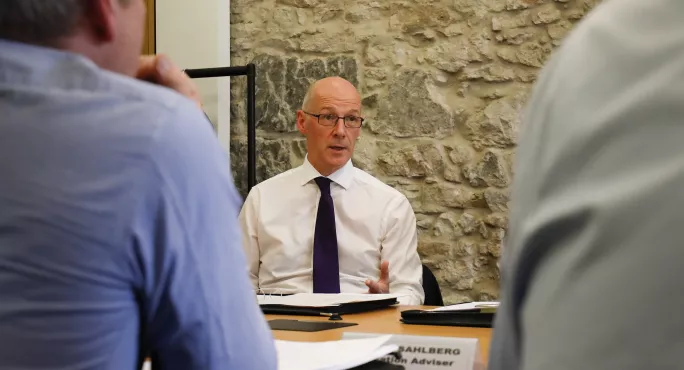Scotland’s education secretary has attempted to allay fears that the country’s new standardised national assessments will lead to school league tables.
John Swinney said today that the Scottish government will only have access to data “at a national level” and will not collect detailed information about the performance of individual pupils or schools.
He added that this data would “help us identify trends, including strengths and weaknesses in particular aspects of literacy and numeracy”.
Scotland’s biggest teaching union, the EIS, welcomed the news, which it said “confirms that the Scottish government does not intend to support any form of league tables of schools based on standardised assessment results”.
The prospect of league tables was one of the biggest concerns expressed by critics when the government announced its plans for standardised national assessments in 2015.
‘Increased workload and bureaucracy’
EIS general secretary Larry Flanagan said Mr Swinney “was clear that the new assessments are intended to serve as a diagnostic tool to be utilised by teachers to support their own professional judgement of pupil progress”.
However, he added: “It remains to be seen how useful teachers find the assessments in practice.”
Mr Flanagan expressed concern that some local authorities were planning for the pupil assessments to be taken at a fixed point in the school year, which, he said, “flies in the face of the intent of the programme and is absolutely contrary to the [government] guidance” that how the assessments are used should be determined by “teachers’ own professional judgement”.
He added: “Teachers were promised, also, that the new standardised assessments would replace existing testing regimes but not all councils have agreed to this. Potentially, therefore, there will be even more assessments in the system, leading to increased workload and bureaucracy.”
The new standardised assessments are being taken by pupils in the first, fourth and seventh year of primary school, and the third year of secondary school.
Mr Swinney, who was speaking at an international education-improvement conference in Glasgow, said the online assessments, which have been available since 24 August, had already prompted “very positive feedback” from teachers about the “level of detail [on] where pupils are succeeding or where they require further development”. He added: “This data is clearly useful for schools and local authorities.”
Want to keep up with the latest education news and opinion? Follow Tes on Twitter and like Tes on Facebook




